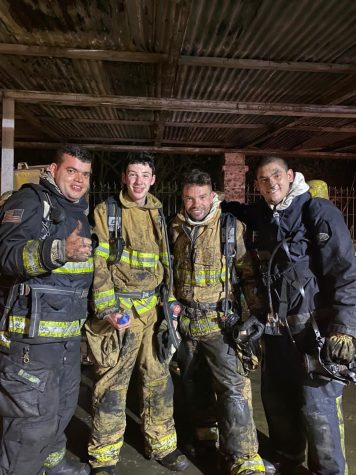Sexually active teens on TV have real teens feeling inadequate
April 1, 2016
The world of “Gossip Girl” is a supposed look behind-the-scenes of New York’s Elite.
Set on the Upper West Side of Manhattan, the characters spend their time attending a prestigious private school, shopping sprees at Barneys and partying the night away at exclusive nightclubs.
Oh, and pretty much everyone has sex with each other.
Some posters advertising the show embrace the increased sexuality, with scandalous close-ups of characters “in the heat of the moment.”
On the posters are varying testimonies from publications, such as “Every Parent’s Nightmare” or “Very Bad For You” as a stamp of approval and condoning the risqué behavior.
While the hookup scenes are by no means R-rated, the sheer amount in the series is startling.
And it’s all glamorized. There are almost no mentions of STDs or protection.
Carol Platt Liebau, the president of the Yankee Institute for Public Policy and conservative commentator said in an interview with Reuters that “Gossip Girl” creates a false reality of what sex is really like.
“(It) glamorizes and normalizes the kinds of behavior that may seem charmingly risque and sophisticated when little girls see them on TV, but which, if emulated in real life, can result in emotional and psychological distress for them,” Liebau said.
Liebau’s argument is not unwarranted.
A 2004 study done by Rand Corporation found that teens who frequently watch TV with sexual content are more likely to initiate intercourse in the following year.
This could be due to a number of different reasons, but the most outstanding is the glamorization of sex on TV.
MTV’s “The Real World” is just one example of the many reality shows on air that promote casual sexuality, but unlike “Gossip Girl,” these shows claim to be ‘reality.’
The shows all start the same way. A dozen or so twenty-somethings are put into a house and are filmed non-stop.
The “guests” in the house are left to their own devices, so inevitably hookups occur.
Producers of the shows even admit to casting participants based on their diversity, including levels of sexual experience.
In almost every house, there is one “virgin” and one or more guests who have a boyfriend/girlfriend back home that is inevitably cheated on.
So what do these shows tell their audiences about sexual activity?
Nothing positive.
Casual sexuality, isn’t necessarily a bad thing at that age, but for younger viewers it creates this false idea that sex is something that can be without consequences.
At 16-18 years old, a large part of MTV’s demographic, sex is not something to be taken lightly and viewers see only the drama that unfolds from people hooking up.
Yet, people continue to tune in week after week to watch the drama unfold and see who is hooking up with who. It’s addictive. It’s the type of TV that turns everyone’s brain to mush.











